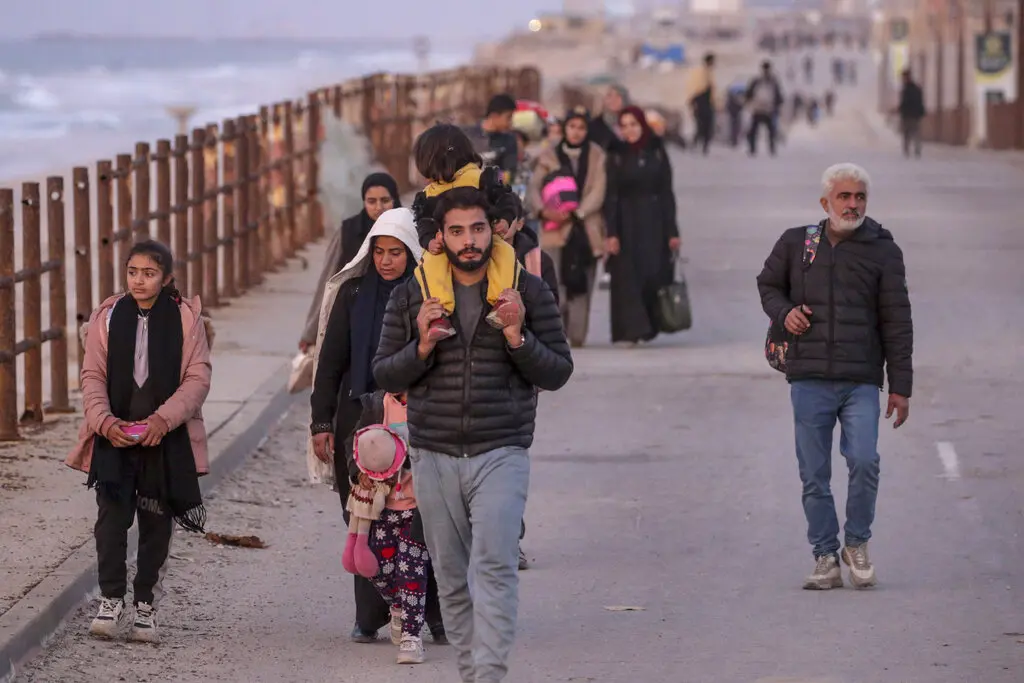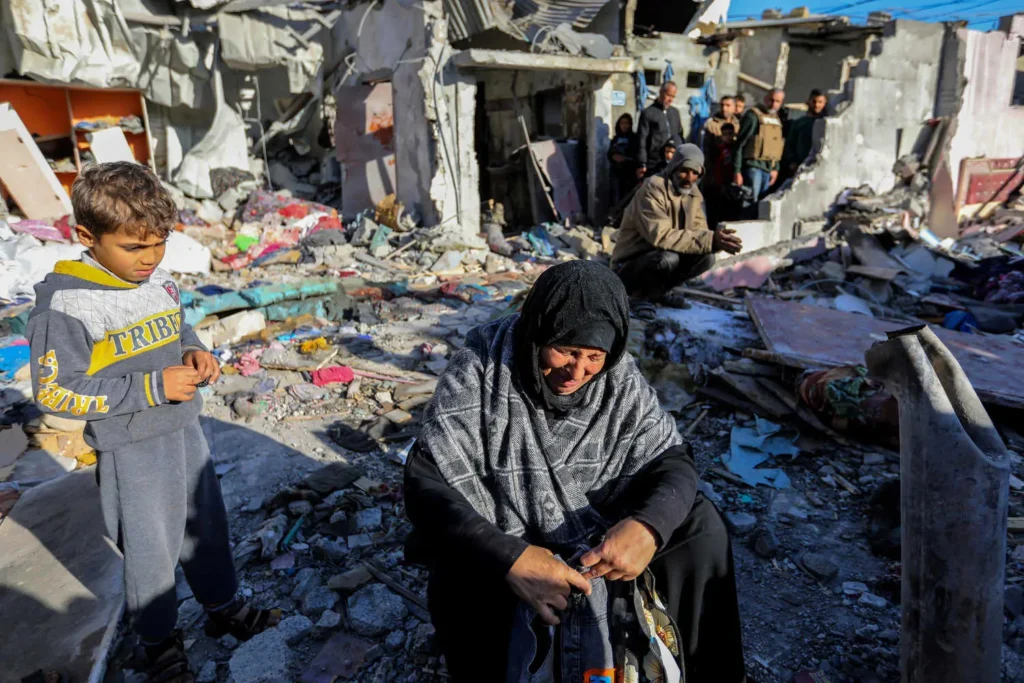Some inhabitants of the northern Gaza Strip claim that as Israel lessens the intensity of its military operation, they can now move more freely through neighborhoods devastated by the conflict and that the sounds of gunfights and explosions are becoming less common.
Although the city is in ruins and entire neighborhoods have been rendered unrecognizable, locals have seen some relief, if only momentarily, since Israeli troops have been partially withheld from the area since early January.
Walking the streets of Gaza City, which was the most populous city in Gaza prior to the conflict, 32-year-old Rami Jelde reported that he had not seen any Israeli soldiers in the last four weeks. For the most of the last three months, he and his family have been holed up in a nearby church with around 350 other Christians, trying to escape almost daily explosions.
Individuals “are starting to leave and walk around, get supplies, and hurry back,” according to Mr. Jelde, a Catholic relief organization employee.
It has been difficult, nevertheless, to accept the devastation of the city, with its destroyed buildings and numerous islands of rubble. “Exploring the streets of northern Gaza feels akin to being in a zombie movie or a post-apocalyptic movie,” Mr. Jelde remarked.
Mr. Jelde claimed he had checked on his house in Rimal, a posh suburb of Gaza City severely damaged by bombing, during the brief period of relative calm. He claimed that outsiders, who were internally displaced Gazans, were inside his partly ruined home after the door had been blasted off. According to Mr. Jelde, some Palestinians who have been displaced from the enclave’s northern towns are currently living in Gaza City’s abandoned homes as squatters, having relocated south.
According to Israeli sources, the army has succeeded in weakening Hamas’s local battalions in northern Gaza, marking the conclusion of the campaign’s high-intensity phase. According to an Israeli military spokesman, the significance of airstrikes has decreased as Israel has established operational authority over the region.
Food supplies are still limited, and not much aid is getting to the north. However, improvised marketplaces have appeared, with sellers offering what many locals assume to be stolen goods. Zeitoun area resident Rajab Tafish, 37, a telephone repairman, stated, “These markets are shameful, but there aren’t any alternatives.”
According to Mr. Tafish, the cost of other basic foods has soared, and staples like milk and eggs are no longer available. According to him, a big bag of rice that used to cost roughly $27 before the war is now selling for $80.
UN Relief and Works Agency spokeswoman Juliette Touma stated that since the conflict began on October 7, not enough vehicles transporting supplies had made it to northern Gaza. According to her, trucks connected to the United Nations have entered the enclave as early as 4:30 a.m. to prevent groups of needy people from impeding and subsequently emptying them. It’s been challenging to deliver aid in an emergency situation because of delays at an Israeli checkpoint in the middle of the region that have stopped the vehicles from arriving at their locations before the crowds grow.
The father of three, Mr. Tafish, claimed that his newborn son, who is less than a month old, was able to visit a hospital this week for immunizations because of the somewhat calmer circumstances in Gaza City. Nevertheless, he saw on Wednesday that troops had taken back areas they had abandoned weeks earlier.
“I fear that the war may resurface,” he remarked.
In a speech on Tuesday, Israeli Defense Minister Yoav Gallant stated that military leaders intended to use raids, bombings, and special operations to eradicate the army’s remaining “pockets of resistance.”
More than anything, Mr. Tafish expressed his desire that the conflict would finish completely soon. During the height of the fighting in the north, he was obliged to gather at his home for 20 straight days.
He declared, “Gaza needs a hundred years to get back to where it was.” “We want to leave; we’ve had enough.”


